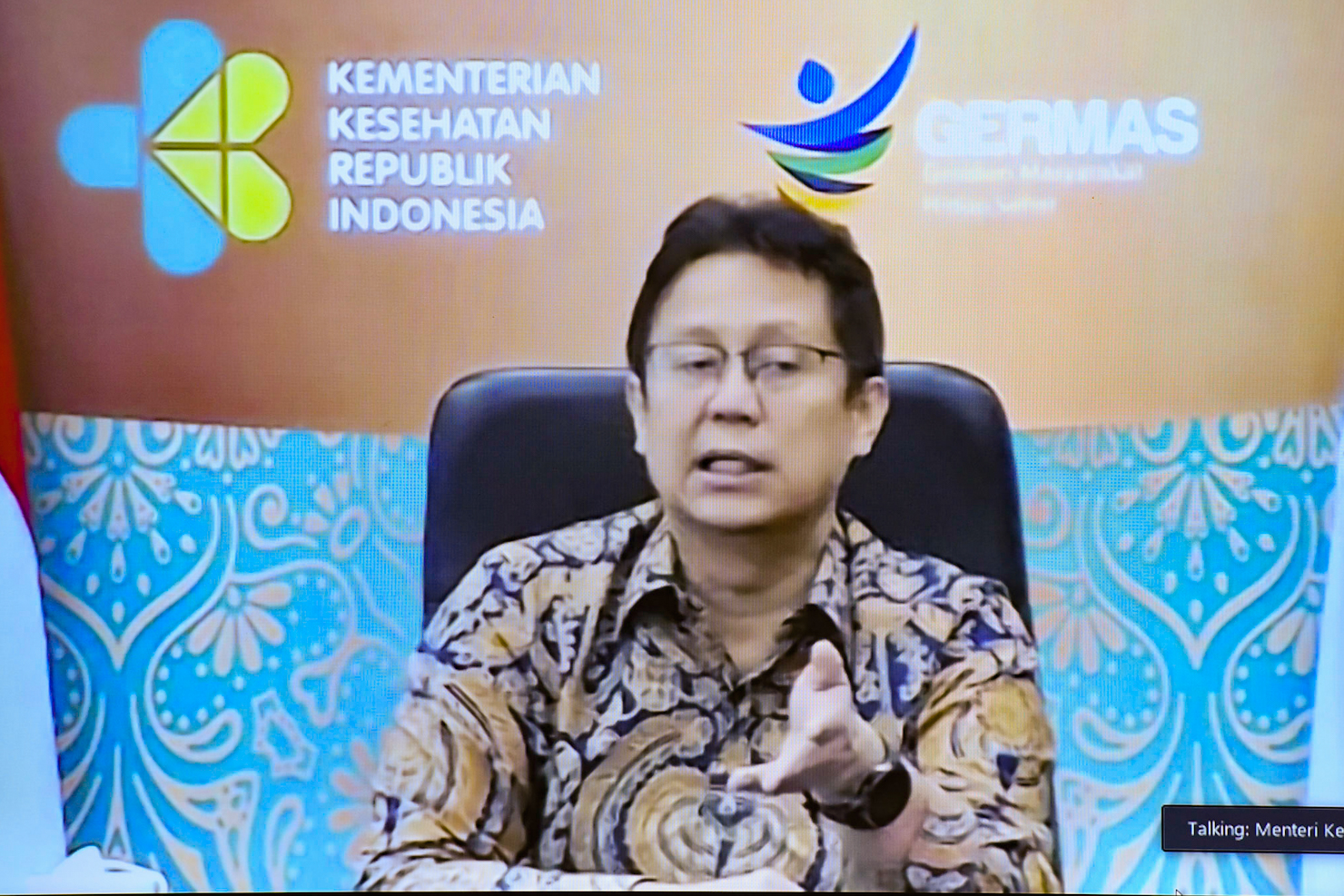Gov’t Committed to Reducing Stunting to 14% in 2024

Ministry of Health Budi Gunadi Sadikin delivers a statement after a Limited Cabinet Meeting, Tuesday (01/11). Photo by: PR of Cabinet Secretariat/Agung.
The Government has unveiled its target to reduce stunting from 24.4 percent in 2021 to 14 percent in 2024.
“President Joko Widodo has ordered us to reduce stunting rate from 24.4 percent in 2021 to 14 percent in 2024 that is translated into 2.7 percent reduction per year,” Minister of Health Budi Gunadi Sadikin said, Tuesday (01/11).
To achieve the target, Budi added, the Government will also implement two holistic interventions, namely specific interventions and sensitive interventions.
According to Budi, specific interventions are interventions aimed at children in their first 1,000 days and at mothers before and during pregnancy, while sensitive interventions are carried out through various cross-sectoral programs.
“Stunting reduction measures rely on specific interventions (30 percent) and sensitive interventions (70 percent),” Budi said, adding that the National Population and Family Planning Agency (BKKBN) as the agency in charge of implementing national stunting reduction policies will synchronize the intervention measures by involving relevant Ministries/Agencies.
Budi went on to say that Ministry of Health will undertake three specific prenatal interventions, namely providing supplement tablets for young women and pregnant women and increasing nutritional intake, providing more consultation sessions for pregnant women from four to six times, and monitoring fetal development during pregnancy.
Ministry of Health, he added, will also equip all health community centers (puskesmas) with ultrasound equipment.
On postnatal interventions, the Minister pointed out that the Government will support exclusive breastfeeding, adding that Ministry of Health will also provide education on nutritional adequacy for complementary feeding (MP-ASI), especially animal protein.
Another specific postnatal intervention, Budi added, is the implementation of complete basic vaccination drive.
“We strive to improve basic immunization drive and will integrate it with COVID-19 vaccination system so that the monitoring can be much more technology-based and real-time,” he said, adding that the Government will provide two more vaccine types, namely Rotavirus vaccine and PCV vaccine to protect babies and infants from infection in their first 1,000 days.
“Vaccination for pneumonia and diarrhea, Rotavirus and PCV is expected to protect [babies and infants] during the first two years and the first 1,000 days of their life,” Budi remarked. (FID/UN) (RI/EP)








